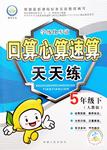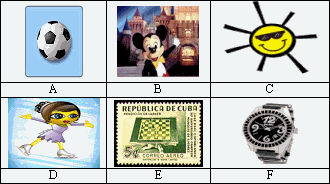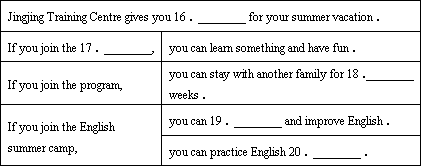题目内容
听力部分
一、听句子(每小题1分,共5分)
第一节,每小题你将听到一个句子,从A、B、C三幅图中找出与你所听内容相符的选项。每个句子读两遍。
1.

2.

3.

4.

5.

二、听句子、对话和短文(每小题1分,共15分)
第二节,听句子,选择该句的正确答语。每个句子读两遍。
6.A.He is 45.
B.He is a teacher.
C.He is very tall.
7.A.No, thanks.
B.It's very delicious.
C.No, I don't think so.
8.A.It's made of wool.
B.It's very cheap.
C.Thank you.
9.A.It's very kind of you.
B.Sorry, she isn't in now.
C.Hello! What's the matter?
10.A.Thank you.
B.Never mind.
C.You're welcome.
第三节,你将听到五段对话及五个问题,选择能回答问题的选项。每段对话及问题读两遍。
11.A.Every day.
B.Once a week.
C.Never.
12.A.They're new.
B.They're short and fat.
C.They look quite different.
13.A.Four years ago.
B.Six years ago.
C.A long time.
14.A.At school.
B.At home.
C.In hospital.
15.A.Pigs are hard to look after.
B.He likes pigs very much.
C.He doesn't want a pig as a pet.
第四节,听短文,选择正确答案。短文读两遍。
16.What did the two friends want to do by the river?
A.Fish.
B.Swim.
C.Walk the dog.
17.How was the weather that day?
A.Rainy.
B.Cold.
C.Cloudy.
18.What did the dog want to do?
A.Eat some fish.
B.Follow the friends.
C.Carry both the caps.
19.What were the caps different in?
A.Colour.
B.Size.
C.Material.
20.What do we know about the dog?
A.It was clever.
B.It was lazy.
C.It was pretty.
三、听短文,填表格(每小题1分,共5分)
第五节,听短文,根据短文内容填写表格,每空一词。短文读两遍。

解析:
1.B 2.A 3.A 4.C 5.C 6.B 7.A 8.C 9.B 10.B
11.A 12.B 13.B 14.C 15.B 16.A 17.B
18.C 19.B 20.A
21.door
22.Japan
23.before
24.European
25.finish
听力原文
一、听句子
第一节,每小题你将听到一个句子,从A、B、C三幅图中找出与你所听内容相符的选项。每个句子读两遍。
1.My uncle's telephone number is 321-5607.
2.Lucy has a headache.
3.Ships can move fast in the sea.
4.Eating more vegetables is good for our health.
5.It is always raining these days, so we have to stay at home.
二、听句子、对话和短文
第二节,听句子,选择该句的正确答语。每个句子读两遍。
6.Hi, Li Ping.What does your father do?
7.Would you like another piece of cake?
8.What a beautiful jacket!
9.Hello! May I speak to Jane, please?
10.I'm sorry I've troubled you so much.
第三节,你将听到五段对话及五个问题,选择能回答问题的选项。每段对话及问题读两遍。
11.W:Which is your favorite subject, John?
M:Of course, English.I read it every day.
Q:How often does John read English?
12.W:Do you know the twin brothers in our class, Tom?
M:Yes.They are both short and fat.
Q:What do the twins look like?
13.W:I know you like collecting stamps.
M:Yeah, I have collected them for 6 years.
Q:When did the man start to collect stamps?
14.W:Hello, David.How is your sister now?
M:Hi, Alice.My sister is much better, thank you.The doctor says she can go home tomorrow.
Q:Where may David's sister be now?
15.W:I want to get a pet.What should I get?
M:How about a little pig? I think it's cute and easy to take care of.
Q:What does the man mean?
第四节,听短文,选择正确答案,并将选项字母填到题前括号内。短文读两遍。
One day two friends went fishing.They had a dog with them.When they came close to the river, they put their caps on a big stone and then they went up to the river to look for the fish.It was cold that day, so they told the dog to go back for their caps.
When the dog got there, he wanted to carry both caps together in his mouth at the same time.It was difficult.After a while he noticed that one of the caps was smaller than the other.He put the smaller one in the bigger one, got them down from the stone with his mouth and then he could carry both caps at the same time.
三、听短文,填表格
第五节 听短文,根据短文内容填写表格。短文读两遍。
Different countries and people have different manners.Here are some examples.If you visit a Chinese family, you should knock at the door first.When the door opens, you should not move before the host says “Come in, please.” Before coming into the house in Japan, it is good manners to take off your shoes.In European countries, even if your shoes are very dirty, this is not done.In England, guests always finish the drink or the food to show that they enjoy it.This will make the host very pleased.

 学练快车道口算心算速算天天练系列答案
学练快车道口算心算速算天天练系列答案


 0
0


































